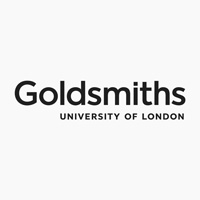fees waived
Anthropology, Media and Digital Practice, BA (Hons)
Goldsmiths, University of London, United Kingdom
Ranking in UK
Communication and Media Studies
Anthropology
Sociology
Costs
food & rent S$24.5k / year
Entry requirements
Scholarships
Limited quantity
Information
Code
Intakes
Website (External)
Programmes
Information
Duration
2029
This programme equips students with essential digital media production skills to create anthropologically and socially informed content in a media-driven world. It combines theoretical knowledge of anthropology—the study of humans, culture, and society—with practical training in creative approaches, including contemporary art, photojournalism, and traditional documentary methods. Hands-on experience with industry-standard software like Adobe Premiere and Audition is provided, alongside exploration of multimodality and issues such as racial injustices and climate change. Students are encouraged to draw from personal experiences to produce a portfolio demonstrating cross-disciplinary skills for employment or further study.The curriculum spans three years: Year 1 introduces foundational modules like Introduction to Digital Research Practices and Ethnographic Film; Year 2 includes compulsory topics such as Digital Ethnographic Filmmaking and optional choices like Anthropology and Public Policy; Year 3 focuses on individual studies projects. Assessment involves coursework, exams, group work, and projects, with feedback provided through written comments and workshops to support student development.
Year 1 In your first year, you will study the following compulsory modules: Introduction to Digital Research Practices Approaches to Contemporary Anthropology Anthropological Methods Ethnographic Film Academic Skills for Anthropology Anthropological Ideas Today Year 2 Compulsory modules In your second year, you will study the following compulsory modules: Digital and Image-based Storytelling: (Counter) Cartographies Digital Ethnographic Filmmaking Critical Ecologies: black, indigenous, queer and transnational feminist approaches Anthropology and Political Economy Thinking Anthropologically Thinking Through Race The Goldsmiths Elective Optional modules You will also choose one of the following modules: Anthropology and Public Policy Indigenous Cosmopolitics, Anthropology and Global Justice Anthropology of Religion The Goldsmiths Project Year 3 In your final year, you will choose to study one of the following compulsory modules: Individual Studies with Practice or Extended Individual Studies with Practice Option modules You will also choose 75 - 90 credits of option modules from a list of approved options available annually from the Department of Anthropology.
- Please note that due to staff research commitments not all of these modules may be available every year.
A local representative of Goldsmiths, University of London in Singapore is available online to assist you with enquiries about this course.

